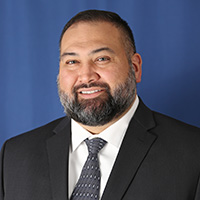The IHS Health Information Technology Modernization Program is a multi-year effort to modernize health IT systems for IHS, tribal, and urban Indian health care programs. The program will replace the Resource and Patient Management System, RPMS, which handles everything from patient registration to insurance billing, with an enterprise electronic health record system. Replacement of RPMS with a new enterprise EHR system will connect isolated data and improve health care coordination for patients throughout Indian Country, creating a sustainable system for future generations.
While the IHS and our partners are eager to begin implementation of the health information technology modernization project, our approach remains methodical, data-driven, and user-centered. The magnitude of the effort and importance of uninterrupted, high-quality health care delivery to tribal and urban communities demands such an approach. I see us – IHS, tribal and urban Indian organizations, clinicians, and patients – building this new enterprise system together.
IHS is the exclusive developer and supporter of RPMS, used throughout IHS and by many tribal and urban health care facilities. This model is unsustainable and cannot meet the continually evolving requirements for a modern health care delivery system. The RPMS also has dependencies on the U.S. Department of Veterans Affairs “VistA” system, which is scheduled for replacement with a commercial EHR product.
During the exploration and evaluation of our current health IT system, we coordinated closely with users. Our decision to replace the aging Resource and Patient Management System as the best way ahead came from the results of our review, tribal consultation, and urban confer.
As we move forward, our focus is on purpose. The purpose is not technology for technology’s sake, but how it can improve patient outcomes. From my experience as the IHS chief information officer, a hospital chief operating officer, and a tribal health care patient, this means that the right data is available at the right time for clinicians and patients to support the best possible outcomes. We know this level of success requires collaboration with federal, tribal, and urban partners to address hardware requirements, software functionality, data integration, business process revisions, workflow redesigns, user acceptance testing, and new system training support.
I appreciate our honest discussions with tribal leaders, care facility executives, clinicians, and local technicians. Understanding the capabilities, solutions, and shortfalls within their current EHR will help us identify shared best practices that we can embed in our new enterprise system. To continue listening to our partners throughout the development, implementation, and evolution of our new EHR solution, IHS recently put four things in place:
- Executive Steering Committee: IHS created an agency-wide oversight body to coordinate federal responsibilities with our partners. Core responsibilities include oversight of the Health IT Modernization Program, guiding principles, tribal and urban Indian organizations collaboration, risk reviews, management, and communications.
- Tribal Consultation and Urban Confer: We have shifted from listening sessions to tribal consultation and urban confer, which moves to more formal, two-way discussions to help us better understand local health care systems’ needs to build an enterprise EHR that matches or exceeds our current capabilities. We have already held two sessions in 2022, with more upcoming. These were announced through Dear Tribal and Urban Indian Organization Leader Letters on the IHS website.
- Product Demonstrations: Multi-disciplinary tribal, urban, and IHS system-users will participate in vendor demonstrations for pre-defined scenarios and provide feedback to IHS to inform the selection process.
- Focus Groups: Proposed groups within the program’s governance structure in areas such as interoperability, implementation, and data management. These groups, comprised of tribal, urban, and federal technical and clinical experts, will provide input to support improved health care services and outcomes for Indian Country.
Finally, we realize that for system users to provide input, they need to understand what we are working on and why. To this end, we launched a new section on the IHS website dedicated to our Health IT Modernization Program. You can also sign up here to receive additional program updates.
Related Content:
The IHS Health Information Technology Modernization Program



